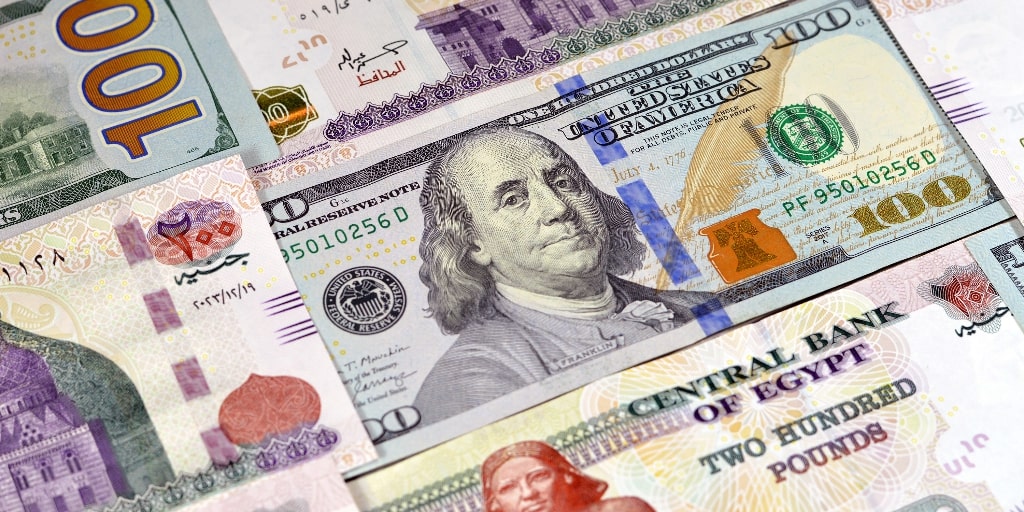The Egyptian pound (EGP) reached a new low against the US dollar (USD) this week, selling at EGP 49.3034 per USD and buying at EGP 49.2034 as of 5 August, according to data from the Central Bank of Egypt (CBE).
This is the highest USD rate against the EGP since 7 March, when Egypt last devalued its currency causing it to fall to around EGP 50 before eventually settling to around EGP 47 weeks later.
Since March, the CBE has abided by a flexible exchange rate system, enabling the currency to react naturally to market fluctuations.
OTHER CURRENCIES
In Europe, the euro (EUR) is now buying and selling between EGP 53.8778 and EGP 53.9922. The British pound (GBP) also gained substantially against the EGP, with buy-sell ranging standing at EGP 62.7196 to EGP 62.8619 respectively.
In the Asian markets, the Japanese yen (JPY) is being bought at EGP 34.4634 and sold at EGP 34.5407 per 100 yen. Similarly, the Chinese yuan (CNY) trades around EGP 6.9021 and EGP 6.9174.
For Middle Eastern currencies, the UAE dirham (AED) and Saudi riyal (SAR) are trading at EGP 13.4239 and 13.1353, respectively.
THE CULPRIT: AN ONGOING GLOBAL MARKET DECLINE
The decline in the EGP against major currencies can be attributed to a broader global market downturn occurring the past week — sending shocks across stock markets in several countries.
On 5 August, global stock markets experienced significant sell-offs, driven primarily by concerns over economic slowdowns in major economies — particularly in the US economy and reports of increasing unemployment rates in the country.
The market turbulence is exacerbated by fears of a potential recession in the US, as the Federal Reserve continues its aggressive interest rate hikes to combat inflation. This tightening of monetary policy has led to a stronger dollar, placing additional pressure on emerging market currencies like the EGP.
The market responded swiftly on Monday, with stock traders witnessing the Dow Jones Industrial Average falling by 2.6 percent, while the S&P 500 recorded its worst day in nearly two years, declining by 3 percent.
The US’s market panic set a domino effect across other stock markets. Notably, Japan’s Nikkei 225 index plunged by 12.4 percent, marking its worst day since the 1987 ‘Black Monday’ crash, triggered by the Bank of Japan’s unexpected interest rate hike.
Arab markets also faced significant declines. The UAE’s Dubai Financial Market Index recorded losses of 4.5 percent, while the Abu Dhabi Securities Market Index declined by 3 percent. The Saudi Tadawul Index also fell amid the global slowdown, declining by 2.1 percent. Turkey’s Borsa Istanbul 100 Index experienced a greater shock, falling by 6.7 percent.
In Egypt, the EGX30 Index reached losses amounting to 2.3 percent, recording a market cap loss of EGP 56 billion.





















Discussion about this post